Auxiliary reproductive technologies
Auxiliary reproductive technologies renders high-tech medical assistance in diagnosing and overcoming infertility using methods of assisted reproductive technologies. The office was opened in 2006, more than 10 years of successful activity led to the fact that many married couples have found the happiness of paternity and motherhood. As a result of IVF programs, more than 3,000 children were born.
The department is headed by Doctor of Medical Sciences, assistant professor of the Department of Perinatal and Reproductive Medicine Elena Borisovna Druzhinina.
All the doctors of the department are engaged in research in the field of reproductology, embryology and urology, have scientific degrees. The embryologists of the department have serious theoretical training and extensive practical work experience.
The professionalism of doctors, the latest modern equipment, and an individual approach to each family, guarantee a high incidence of pregnancy.
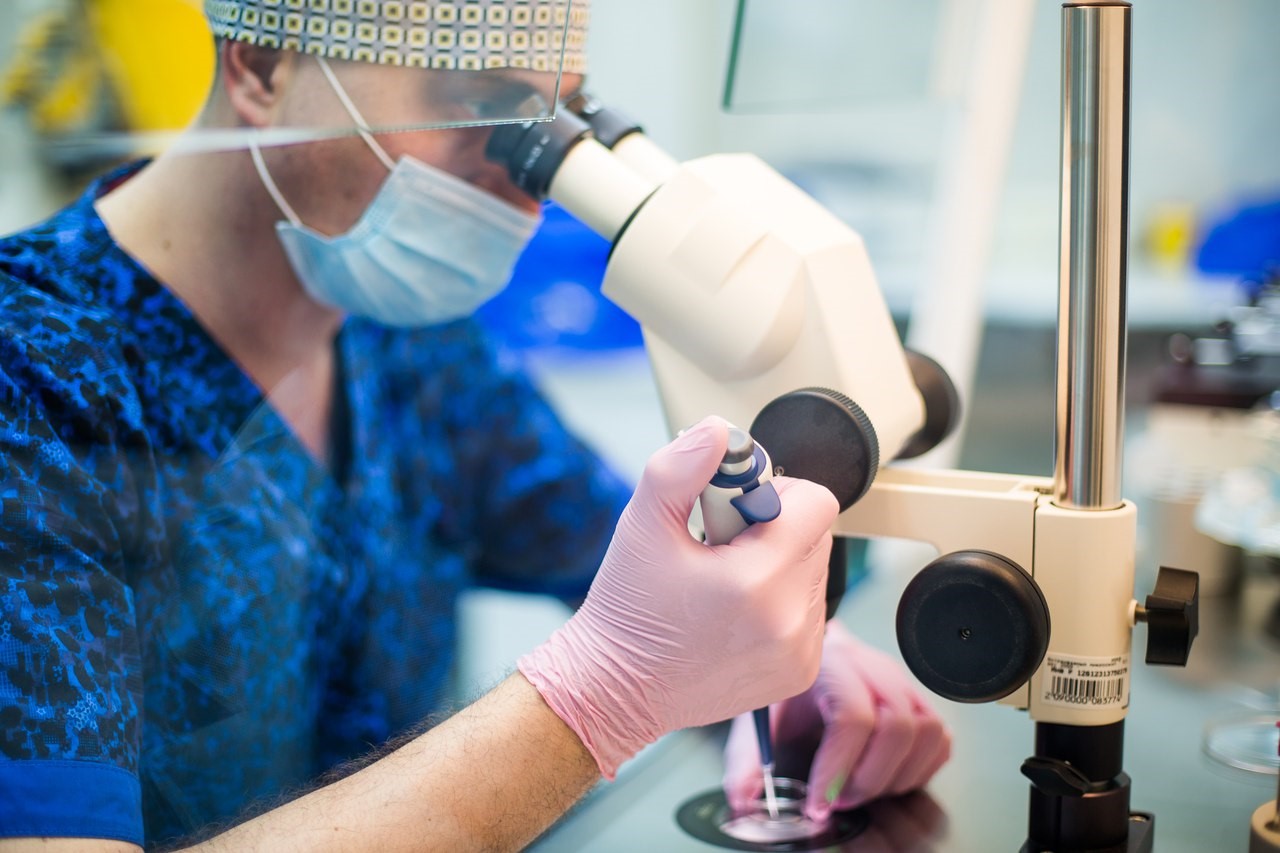
in 2017, the department conducted more than 1,000 cycles of assisted reproductive technologies, of which 601 are IVF programs due to MHI funds. The greatest cumulative incidence of pregnancy during IVF is 38.9%.
OUR TECHNOLOGIES
The embryology laboratory of the department applies the most effective and safe methods in the treatment of infertility
- Intrauterine insemination with the husband's semen
- Intrauterine insemination with donor sperm
- Cultivation and transfer of embryos, using a wide variety of modern culture media
- Biopsy of embryos at various stages of development for the purpose of preimplantation genetic diagnosis of hereditary diseases
- The use of various auxiliary hatching techniques
- Cryopreservation and storage of biological material
- Donation of oocytes, spermatozoa and embryos
- Bank of donor sperm, donor embryos
- Sperm processing by flotation and gradients
- Selection of spermatozoa taking into account their physiological maturity and DNA fragmentation and introduction of the oocyte into the cytoplasm (IKSI / PIKSI technique) for the treatment of severe forms of male infertility
OUR OPPORTUNITIES
- Department of VRT conducts diagnostics and treatment of various forms of female and male infertility
- Minimally invasive surgical manipulations make it possible to achieve the birth of genetically related children in men with single viable spermatozoa
- Cryopreservation of embryos allows carrying out deferred transfers, preventing complications
- The department carries out donor programs and programs with surrogate motherhood (donation of oocytes, sperm donation, donor embryos)
SCIENTIFIC ACTIVITY
Employees of the department participate in conferences, publish articles in leading journals. The main areas of study are:
- Efficiency of cryoembryonic transfer depending on the technique of preparation of the endometrium and embryological stage
- Perfection of protocols for stimulation of superovulation in various forms of infertility
- Risk factors and criteria for predicting ovarian hyperstimulation syndrome
Our specialists
- Druzhinina Elena Borisovna - head of the department, doctor of medical sciences, associate professor of the Department of Perinatal and Reproductive Medicine, IGMAPO
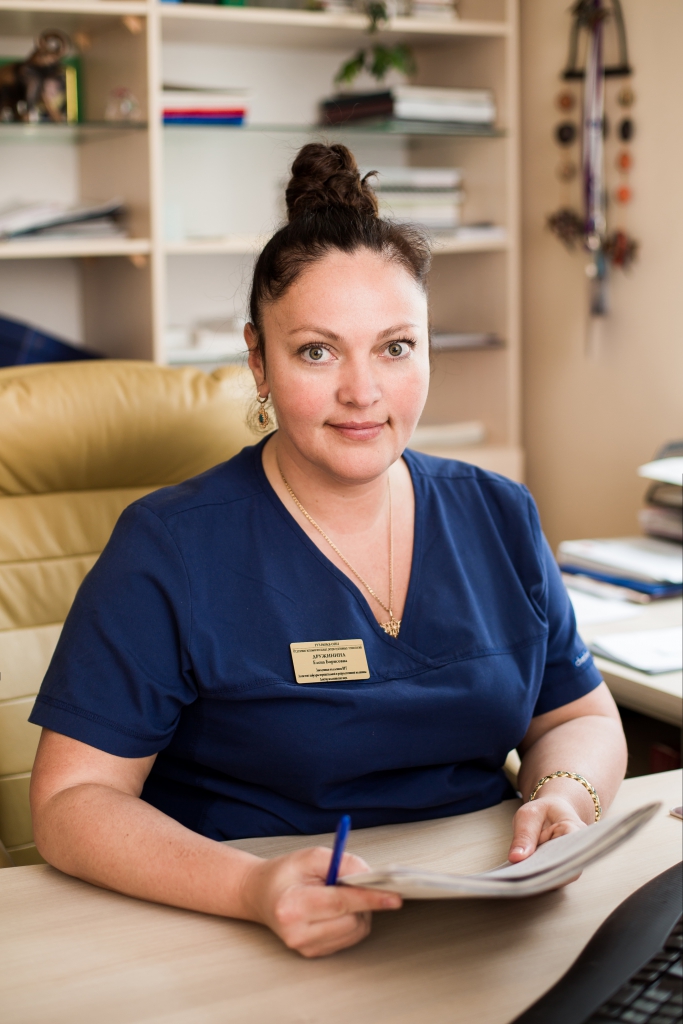
- Mashakevich Lyubov Ivanovna - obstetrician-gynecologist, reproductive specialist, candidate of medical sciences
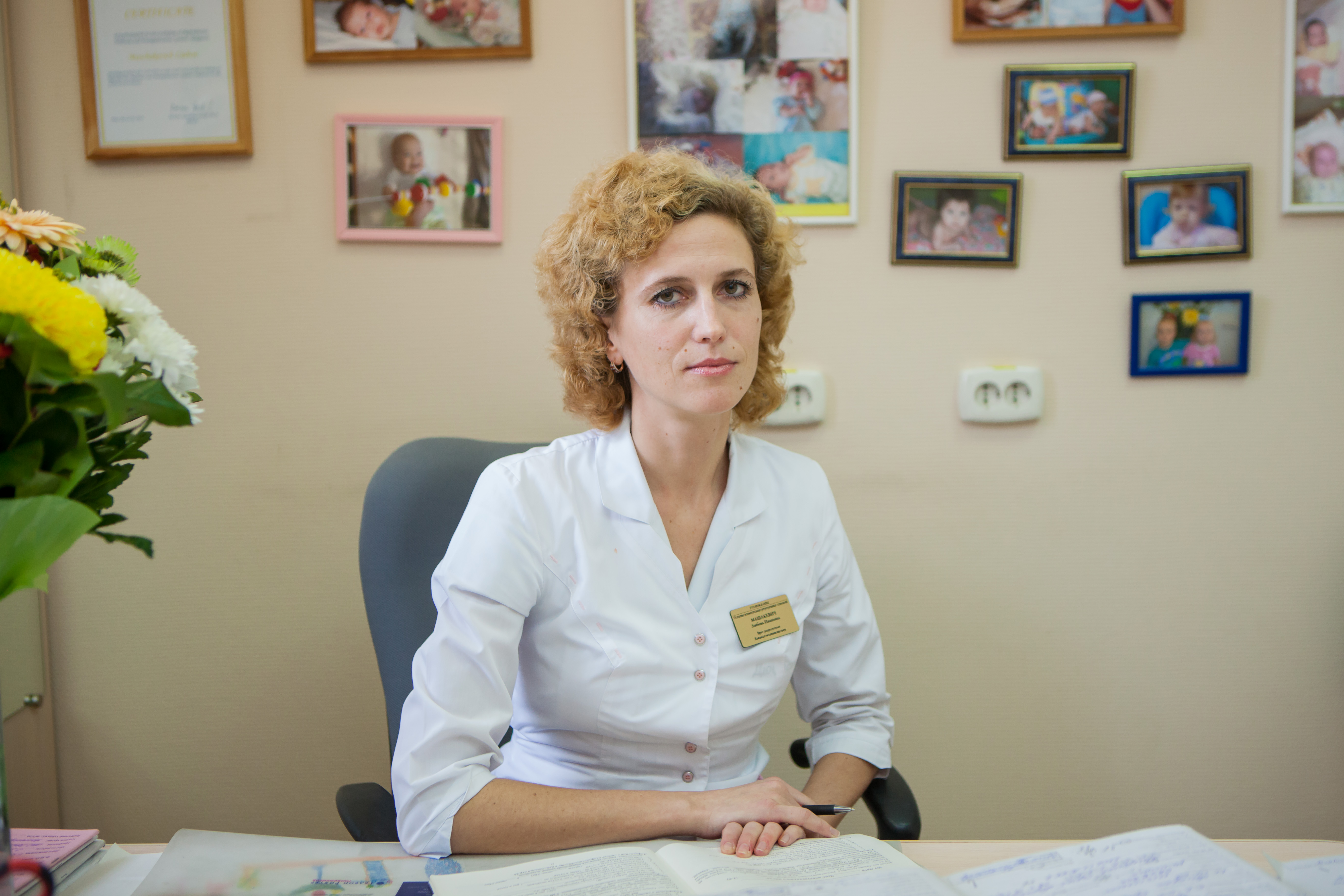
- Mylnikova Yulia Vladimirovna - obstetrician-gynecologist, reproductive specialist, candidate of medical sciences

- Sahyanova Natalia Lazarevna - obstetrician-gynecologist, reproductive specialist, candidate of medical sciences
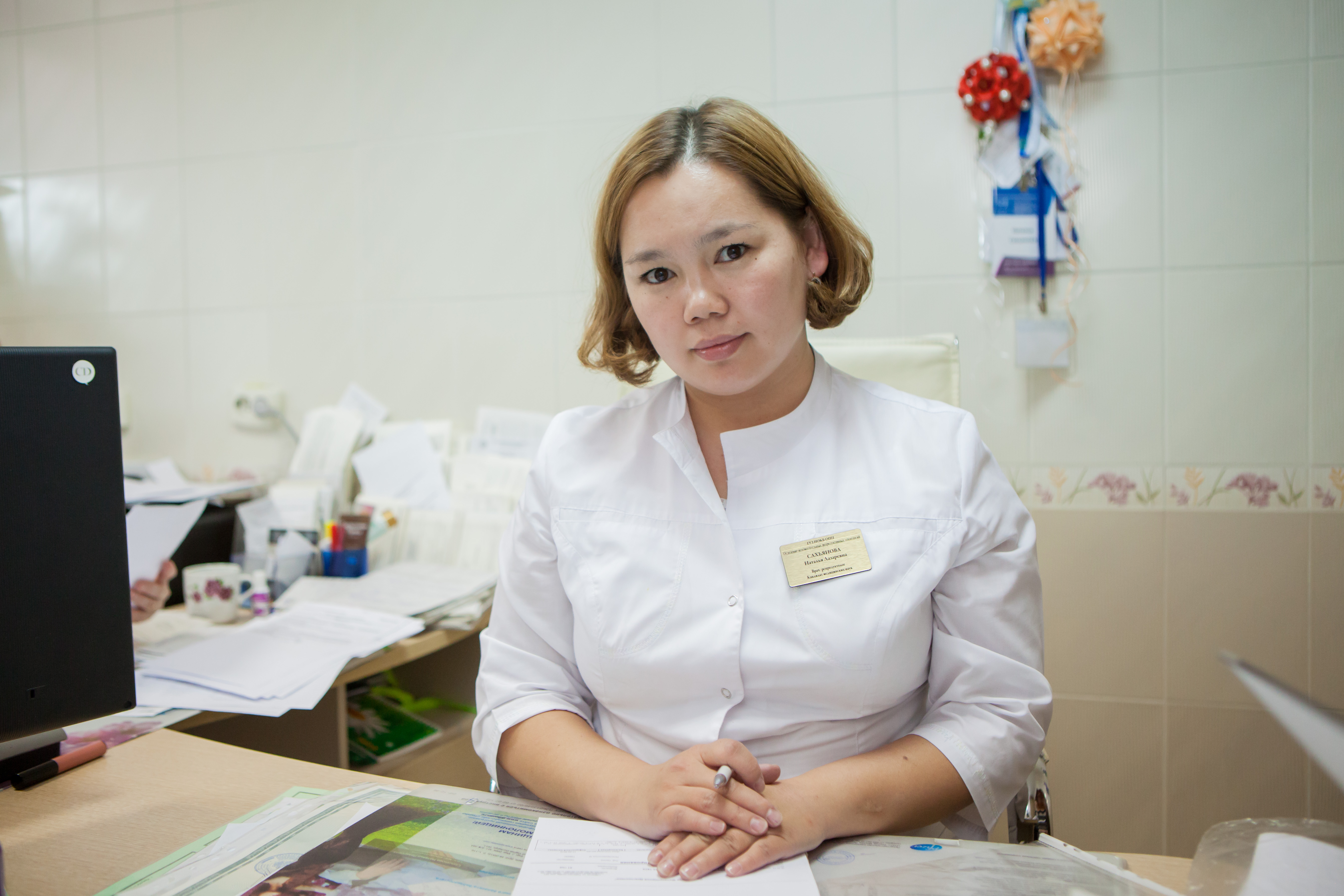
- Chemezov Alexander Petrovich - doctor urologist andrologist
- Dvoryanov Yan Anatolyevich - embryologist
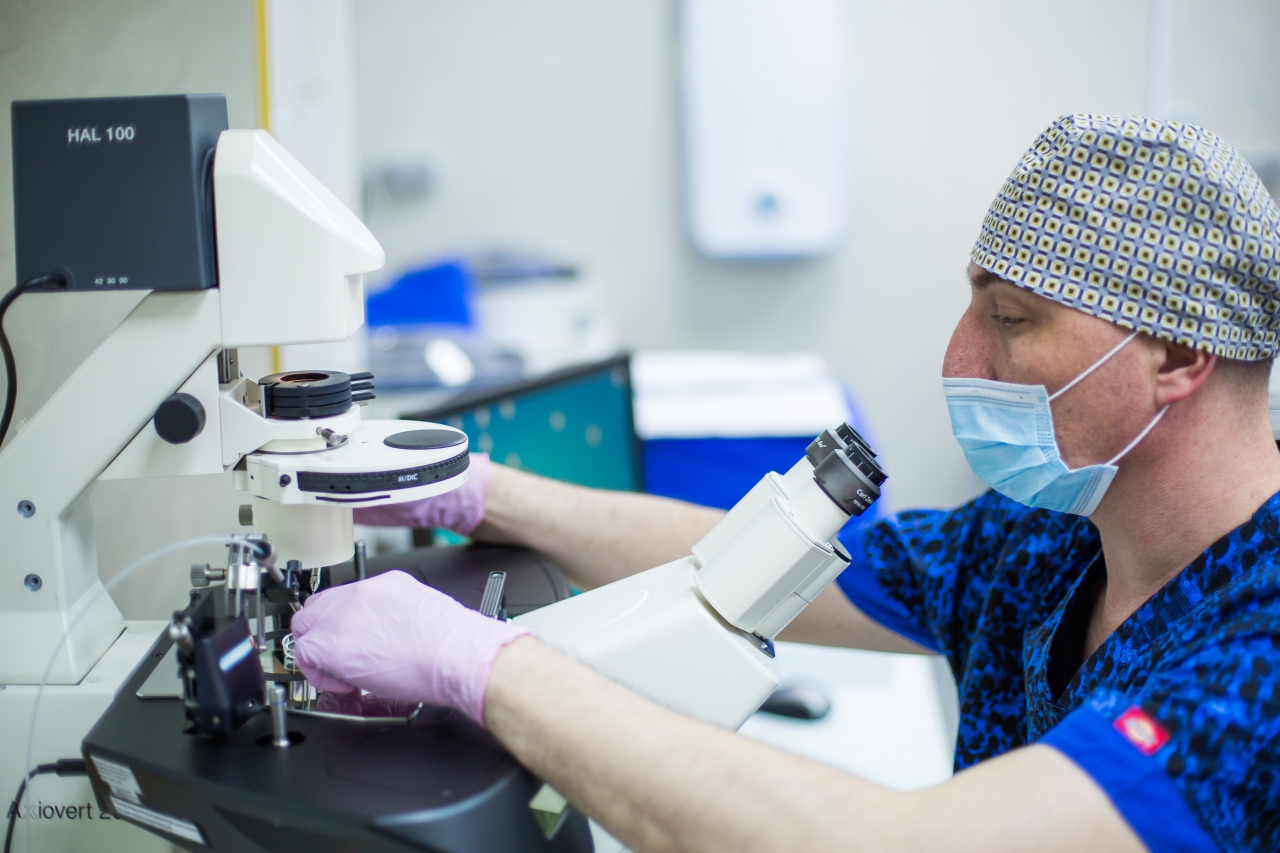
- Voitova Olga Olegovna - embryologist
- Krylov Irina S. - embryologist, Candidate of Medical Sciences
laboratory diagnostics
The following studies are carried out in the ART section of the OPC:
- Clinical blood test
- Clinical analysis of urine
- Blood chemistry
- Karyotyping
- Determination of blood type and Rh factor
- Hemostasiogram (coagulogram)
- Investigation of the hormonal profile (LH, FSH, estradiol, prolactin, thyrotropic hormone, T 3, T4, DHEA, 17-OH progesterone, testosterone, progesterone, AFP)
- Intrauterine infections (rubella, toxoplasma, cytomegalovirus, herpes 1 and 2 type)
- Research on sexually transmitted infections by PCR (chlamydia, ureaplasma, trichomonads, gonococci, mycoplasma, HSV, CMV)
- Viral and bacterial infections (HIV, Hepatitis B, C, syphilis)
- Definition of Antimyuller's Hormone
- Diagnosis of pregnancy - definition of hCG
- Sperm research ( MAR- test, DNA fragmentation test for spermatozoa, FISH sperm diagnosis, sperm biochemistry, HBA- test)
- Cytological examination of cervical scrapings
- Microscopic examination of the urogenital tract to be separated for the presence of UGI pathogens by PCR
- Smear for purity
- Microscopic examination of the secretion of the prostate
- Bacteriological seeding with the definition of sensitivity to antibiotics
Getting the results of tests in the shortest possible time.
Urologist - Andrologist
- Diagnosis and treatment of male infertility
- Advice before the IVF program
- TESA \ TESE ) Aspiration of sperm from the ovary (operation TESA \ TESE )
- MESA ) Microsurgical sperm aspiration from epididymis ( MESA )
- Operative treatment
Gynecologist - Reproduction
- Diagnosis of female infertility, choice of method of treatment
- Advice before the IVF program
- Stimulation of superovulation
- Transvaginal puncture of follicles
- Preparation for transfer of cryo / embryos
- Preparation for intrauterine insemination (sperm of the husband / donor sperm)
- Donor programs (donor oocytes / donor embryos)
- The program "Surrogate motherhood"
- Hysteroscopy
- Colposcopy
- Ultrasound monitoring
- Pipel-endometrial biopsy
- Examination of miscarriage
Modern equipment and professional staff provide comfortable treatment and the arrival of a desired pregnancy.
Phones of the department : (3952) 40-78-24, 40-79-53
The department of assisted reproductive technologies requires sperm and oocyte donors (oocytes). Good reward. Tel 83952-40-78-24.
Since 2006, the department of assisted reproductive technologies has been working in the regional perinatal center. The department provides consultative, diagnostic, specialized medical care on an outpatient basis and in a day hospital.
In the work of the department are introduced: in vitro fertilization (IVF), artificial insemination with donor sperm (IISD), cryopreservation of embryos, sperms, intracytoplasmic sperm injection (ICSI) for the treatment of male infertility.
SCHOOL OF "OVERCOMING OF INFERTILITY IN MARRIAGE"
The birth of a child is an important episode of a single whole human life. Pregnancy, childbirth is a joyful and responsible moment in the life of a woman and her family. But, if an attempt to have a child does not lead to the desired result? Then the school "Infertility in Marriage" is for you.
The philosophy of the School "Overcoming Infertility in Marriage" is an opportunity to receive reliable information on pregnancy planning, IVF / ART. This is a socially-oriented project that offers women and their families an integrated approach, consisting of medical information, psychological and training sections to address issues of correcting reproductive disorders.
Tasks
- informing citizens about reproductive health, about reproductive system disorders and methods of correction, including methods of assisted reproductive technologies;
- development and implementation of innovative medical and psychological technologies to accompany women and men in difficult life situations;
- conducting information work on the main areas of the school;
Methods of work
- Group sessions, lectures on reproductive health issues on the basis of the Regional Perinatal Center of the State Children's Clinical Hospital "IOKB": programs of male and female health;
- Outreach seminars for doctors and patients of Irkutsk region
Forms of work
- Educational activities: lectures, training seminars; holding round tables, meetings, conferences; creation and dissemination of information materials, memos on reproductive health issues. Communication and exchange of experience with those who are also interested in ART.
- Public actions. "The health of girls, girls, women ...", "Men's Health", "Family. Ecology. Health ", etc.
